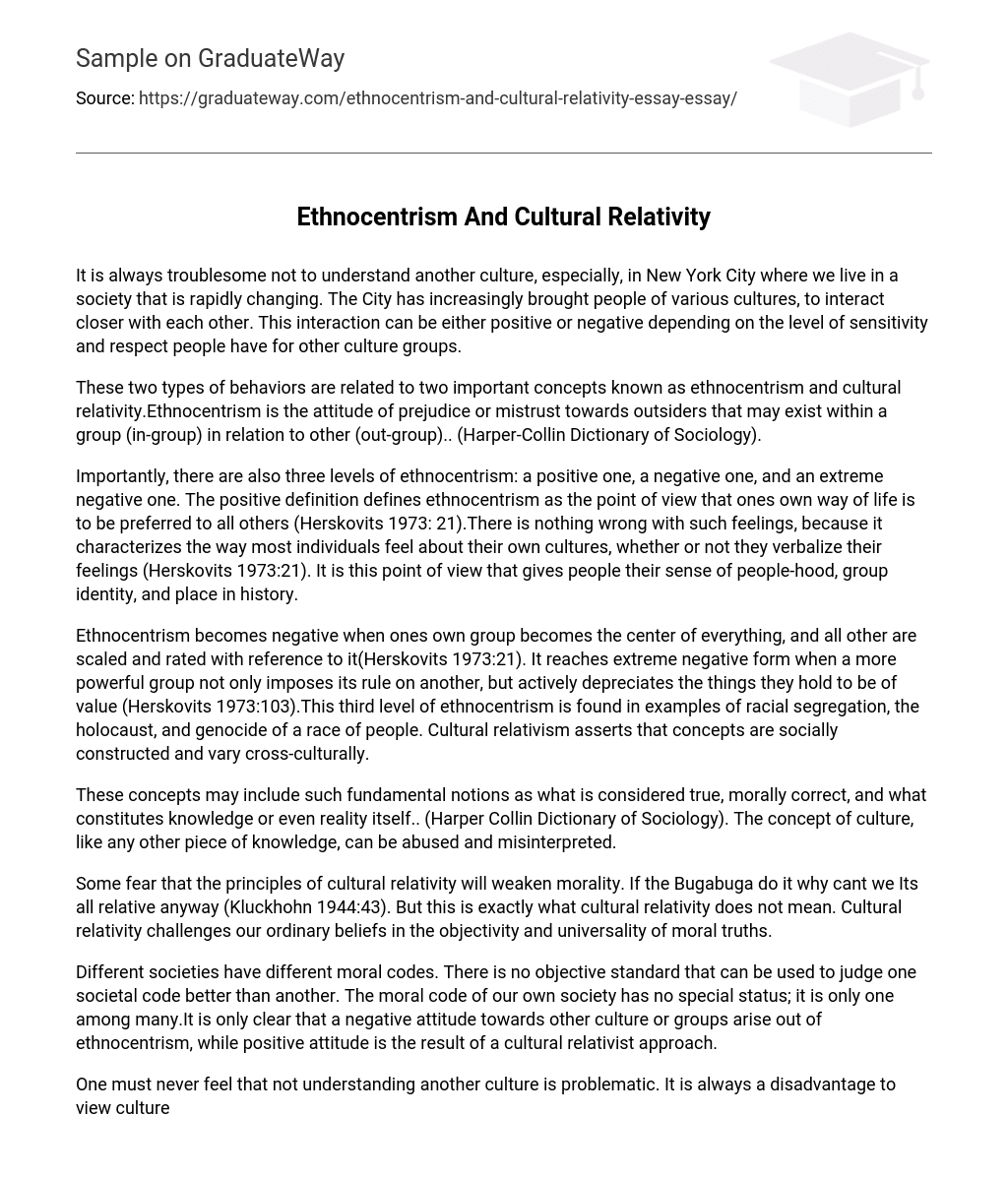It is always troublesome not to understand another culture, especially, in New York City where we live in a society that is rapidly changing. The City has increasingly brought people of various cultures, to interact closer with each other. This interaction can be either positive or negative depending on the level of sensitivity and respect people have for other culture groups.
These two types of behaviors are related to two important concepts known as ethnocentrism and cultural relativity.Ethnocentrism is the attitude of prejudice or mistrust towards outsiders that may exist within a group (in-group) in relation to other (out-group).. (Harper-Collin Dictionary of Sociology).
Importantly, there are also three levels of ethnocentrism: a positive one, a negative one, and an extreme negative one. The positive definition defines ethnocentrism as the point of view that ones own way of life is to be preferred to all others (Herskovits 1973: 21).There is nothing wrong with such feelings, because it characterizes the way most individuals feel about their own cultures, whether or not they verbalize their feelings (Herskovits 1973:21). It is this point of view that gives people their sense of people-hood, group identity, and place in history.
Ethnocentrism becomes negative when ones own group becomes the center of everything, and all other are scaled and rated with reference to it(Herskovits 1973:21). It reaches extreme negative form when a more powerful group not only imposes its rule on another, but actively depreciates the things they hold to be of value (Herskovits 1973:103).This third level of ethnocentrism is found in examples of racial segregation, the holocaust, and genocide of a race of people. Cultural relativism asserts that concepts are socially constructed and vary cross-culturally.
These concepts may include such fundamental notions as what is considered true, morally correct, and what constitutes knowledge or even reality itself.. (Harper Collin Dictionary of Sociology). The concept of culture, like any other piece of knowledge, can be abused and misinterpreted.
Some fear that the principles of cultural relativity will weaken morality. If the Bugabuga do it why cant we Its all relative anyway (Kluckhohn 1944:43). But this is exactly what cultural relativity does not mean. Cultural relativity challenges our ordinary beliefs in the objectivity and universality of moral truths.
Different societies have different moral codes. There is no objective standard that can be used to judge one societal code better than another. The moral code of our own society has no special status; it is only one among many.It is only clear that a negative attitude towards other culture or groups arise out of ethnocentrism, while positive attitude is the result of a cultural relativist approach.
One must never feel that not understanding another culture is problematic. It is always a disadvantage to view culture in an etic way. To understand culture one must endure and encounter the culture from the emic, the inside. It would be mere arrogance for us to try to judge the conduct of other cultures.
We should perhaps keep an open mind and a genuine insight that different cultures do have different moral codes.





